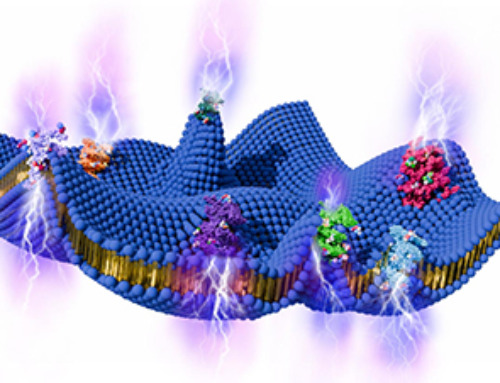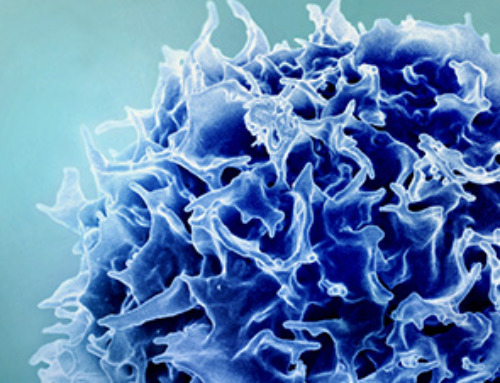You can’t blame your brain for your actions!
Neuroscientists at HSE University have challenged the famous studies that question the free will of our decisions. You can’t shift responsibility for your actions to the brain. The results of the new work were recently published in the journal Neuropsychologia.
Historical Context of the Free Will Debate
The dispute about how much free will people have in making their decisions has been going on for decades. Neuroscientists have joined this discussion thanks to the electroencephalographic (EEG) experiments of Benjamin Libet. In the 1970-1980s, he showed that 0.5–1.5 seconds before conscious awareness of the intention to perform a movement, subjects emit EEG activity that predicts this movement. It turns out that the brain makes a decision and sends readiness potential before a person realizes it, and our actions are nothing more than the result of an unconscious physiological process in the brain.
The results of Libet’s experiments have generated a lot of controversy about free will, and some neurophysiologists have even concluded that it does not exist. Moreover, Libet’s experiment has been repeated using functional magnetic resonance imaging, and it turns out that the decision of the subject can be predicted even 6-10 seconds before their conscious awareness of it.
HSE University’s Take on the Paradigm
The staff of the HSE Institute for Cognitive Neuroscience questioned this experimental paradigm and in their new study confirmed that the time of intention awareness in Libet’s experiments was determined incorrectly. In addition, EEG activity, or the brain signal indicating the readiness of a decision, which was recorded by Benjamin Libet before the decision was made, actually has no direct link to this decision.
In the Libet’s original experiment, the subjects were asked to occasionally bend their wrists and at the same time remember the moment when they felt ready to perform this action. The time of intention awareness was recorded from the words of the subjects themselves: they observed a point that moved along the screen dial, similar to a clock hand, and indicated the position of the point when they felt the desire to bend their hand. The moment of the final decision was determined by the exact reading of the sensor attached to the wrist of the subjects.
The HSE neuroscientists repeated the experiment with two groups of subjects, adding small changes to the task in one of the groups. Using behavioral reports and hypersensitive EEG techniques, the scientists investigated the correlation between the time of intention awareness and the time of final decision. It turned out that the time of awareness can be influenced by experimental procedures: for example, without certain training, the subjects are barely able to determine their intentions, and the traditional Libet paradigm pushes them to the feeling that they can determine the moment of decision-making and intention. Apparently, the instruction itself in the Libet task makes the participants feel that the intention should emerge long before the final decision is made.
In addition, the study confirmed that there is no direct link between the activity of the brain preceding the action and the intention to perform the action. The sense of intention emerged in the subjects at different points in time, whereas the readiness potential was always registered at about the same time. Thus, the readiness potential may reflect the general dynamics of the decision-making process about making a move, but it does not mean that the intention to act has already been generated.
Concluding Thoughts
“Our study highlights the ambiguity of Libet’s research and proves the absence of a direct correlation between the brain signal and decision-making. It appears that the classical Libet paradigm is not suitable for answering the question of whether we have free will while making decisions. We need to come up with a new approach to this extremely interesting scientific puzzle,” says Dmitry Bredikhin, author of the research and junior Research Fellow at the Centre for Cognition & Decision Making.
“Neuroscience tries to answer key questions in our life, including questions of free will and responsibility for our actions. We need to be especially precise in order to draw conclusions that affect our outlook and attitude toward life. Therefore, we tried to understand the predetermination of our decisions and confirmed a number of shortcomings in the famous experiments of Benjamin Libet. This does not mean that we have closed this issue of the illusory nature of our free will, but rather emphasizes that the discussion continues. This might be one of the most interesting questions in modern science, to which we have yet to give a definitive answer,” comments Vasily Klucharev, Project coordinator and leading Research Fellow of the Institute for Cognitive Neuroscience.
Reference: “(Non)-experiencing the intention to move: On the comparisons between the Readiness Potential onset and Libet’s W-time” by Dimitri Bredikhin, Ksenia Germanova, Vadim Nikulin and Vasily Klucharev, 29 April 2023, Neuropsychologia.
DOI: 10.1016/j.neuropsychologia.2023.108570
News
The Brain’s Strange Way of Computing Could Explain Consciousness
Consciousness may emerge not from code, but from the way living brains physically compute. Discussions about consciousness often stall between two deeply rooted viewpoints. One is computational functionalism, which holds that cognition can be [...]
First breathing ‘lung-on-chip’ developed using genetically identical cells
Researchers at the Francis Crick Institute and AlveoliX have developed the first human lung-on-chip model using stem cells taken from only one person. These chips simulate breathing motions and lung disease in an individual, [...]
Cell Membranes May Act Like Tiny Power Generators
Living cells may generate electricity through the natural motion of their membranes. These fast electrical signals could play a role in how cells communicate and sense their surroundings. Scientists have proposed a new theoretical [...]
This Viral RNA Structure Could Lead to a Universal Antiviral Drug
Researchers identify a shared RNA-protein interaction that could lead to broad-spectrum antiviral treatments for enteroviruses. A new study from the University of Maryland, Baltimore County (UMBC), published in Nature Communications, explains how enteroviruses begin reproducing [...]
New study suggests a way to rejuvenate the immune system
Stimulating the liver to produce some of the signals of the thymus can reverse age-related declines in T-cell populations and enhance response to vaccination. As people age, their immune system function declines. T cell [...]
Nerve Damage Can Disrupt Immunity Across the Entire Body
A single nerve injury can quietly reshape the immune system across the entire body. Preclinical research from McGill University suggests that nerve injuries may lead to long-lasting changes in the immune system, and these [...]
Fake Science Is Growing Faster Than Legitimate Research, New Study Warns
New research reveals organized networks linking paper mills, intermediaries, and compromised academic journals Organized scientific fraud is becoming increasingly common, ranging from fabricated research to the buying and selling of authorship and citations, according [...]
Scientists Unlock a New Way to Hear the Brain’s Hidden Language
Scientists can finally hear the brain’s quietest messages—unlocking the hidden code behind how neurons think, decide, and remember. Scientists have created a new protein that can capture the incoming chemical signals received by brain [...]
Does being infected or vaccinated first influence COVID-19 immunity?
A new study analyzing the immune response to COVID-19 in a Catalan cohort of health workers sheds light on an important question: does it matter whether a person was first infected or first vaccinated? [...]
We May Never Know if AI Is Conscious, Says Cambridge Philosopher
As claims about conscious AI grow louder, a Cambridge philosopher argues that we lack the evidence to know whether machines can truly be conscious, let alone morally significant. A philosopher at the University of [...]
AI Helped Scientists Stop a Virus With One Tiny Change
Using AI, researchers identified one tiny molecular interaction that viruses need to infect cells. Disrupting it stopped the virus before infection could begin. Washington State University scientists have uncovered a method to interfere with a key [...]
Deadly Hospital Fungus May Finally Have a Weakness
A deadly, drug-resistant hospital fungus may finally have a weakness—and scientists think they’ve found it. Researchers have identified a genetic process that could open the door to new treatments for a dangerous fungal infection [...]
Fever-Proof Bird Flu Variant Could Fuel the Next Pandemic
Bird flu viruses present a significant risk to humans because they can continue replicating at temperatures higher than a typical fever. Fever is one of the body’s main tools for slowing or stopping viral [...]
What could the future of nanoscience look like?
Society has a lot to thank for nanoscience. From improved health monitoring to reducing the size of electronics, scientists’ ability to delve deeper and better understand chemistry at the nanoscale has opened up numerous [...]
Scientists Melt Cancer’s Hidden “Power Hubs” and Stop Tumor Growth
Researchers discovered that in a rare kidney cancer, RNA builds droplet-like hubs that act as growth control centers inside tumor cells. By engineering a molecular switch to dissolve these hubs, they were able to halt cancer [...]
Platelet-inspired nanoparticles could improve treatment of inflammatory diseases
Scientists have developed platelet-inspired nanoparticles that deliver anti-inflammatory drugs directly to brain-computer interface implants, doubling their effectiveness. Scientists have found a way to improve the performance of brain-computer interface (BCI) electrodes by delivering anti-inflammatory drugs directly [...]





















